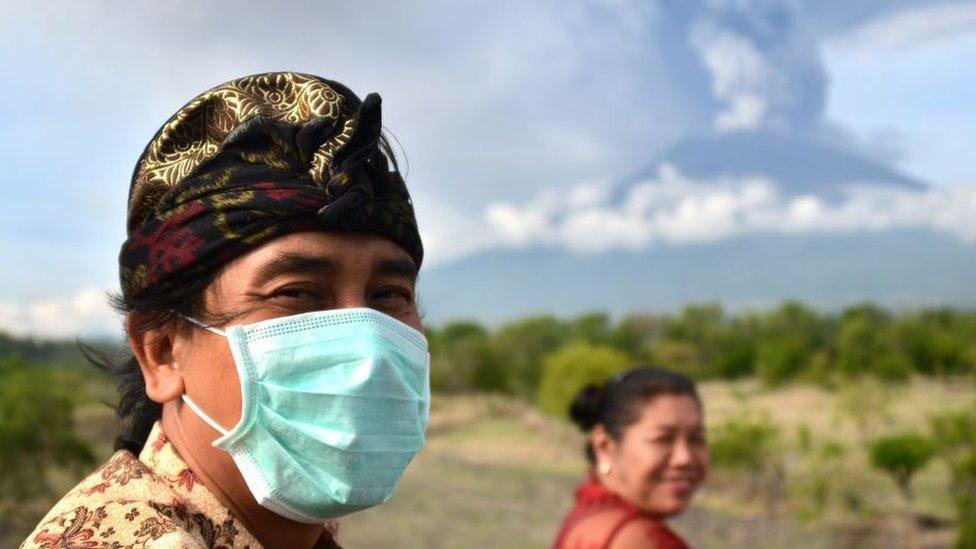Mount Agung: Bali tourism hit by eruption threat
- Published
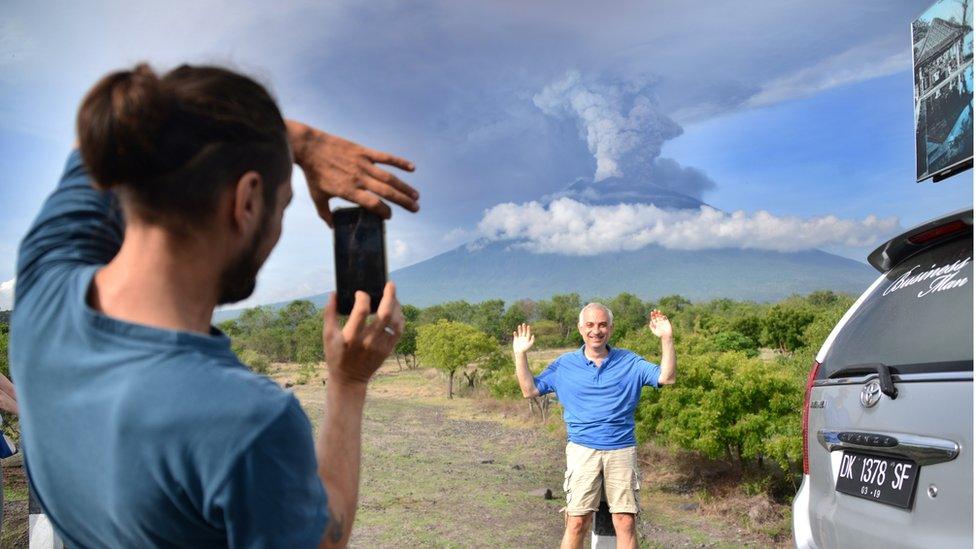
A few tourists haven't been scared off by Mount Agung's possible eruption
The threat of a major volcanic eruption at Mount Agung is already having a negative effect on Bali's most important industry - tourism.
The fear of an eruption has forced the evacuation of 40,000 people from the volcano's foothills.
It has also forced the temporary closure of Bali's main airport until at least Tuesday morning.
Tourism numbers have been down since the volcano began rumbling in September.
"We are very well prepared but we do need to worry about the long-term impact on the lives of the evacuees and the impact on tourism to Bali. That's the more serious issue," said Bali's Governor, Made Pastika.
The Bali Tourism Board has set up a crisis centre to respond to the eruption.
It is co-ordinating free accommodation for 2,315 stranded travellers, and it has set up consular and immigration desks at the airport to help tourists to make arrangements to stay longer.
In the island's south, where the bulk of foreign tourists head, the volcano's impact is not immediately apparent.
"The sun is shining very brightly in Bali's south today," said Gilda Lim Sagrado, a spokeswoman for the Bali Tourism Board.
However, the Tourism Board has indicated that visitor numbers are down since Mount Agung's volcanic tremors began to increase in September.
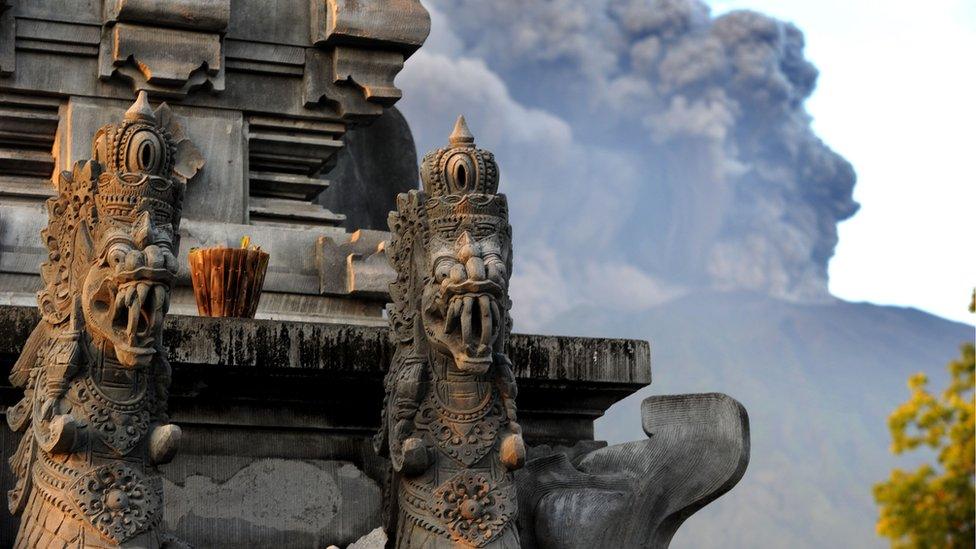
Mount Agung smoulders behind a Balinese temple
A 2015 forecast by the World Travel and Tourism Council estimated that tourism would make up 3.2% of Indonesia's economy by 2025.
In Bali, which drew more than 4.5 million tourists in the first nine months of 2017, tourism makes up a much larger slice of the economy.
Before the volcano started rumbling, the island appeared to be on course to have at least 5 million arrivals in 2017, beating last year's total.
An eruption would almost certainly have an impact on the airline industry too.
Bali's airport has been closed for 24 hours, disrupting 445 flights and roughly 59,000 passengers.
The situation is being reviewed every six hours by the aviation authorities.
"At any time like this, there's a lot of cost and a lot of missed revenue," said Ellis Taylor of FlightGlobal.
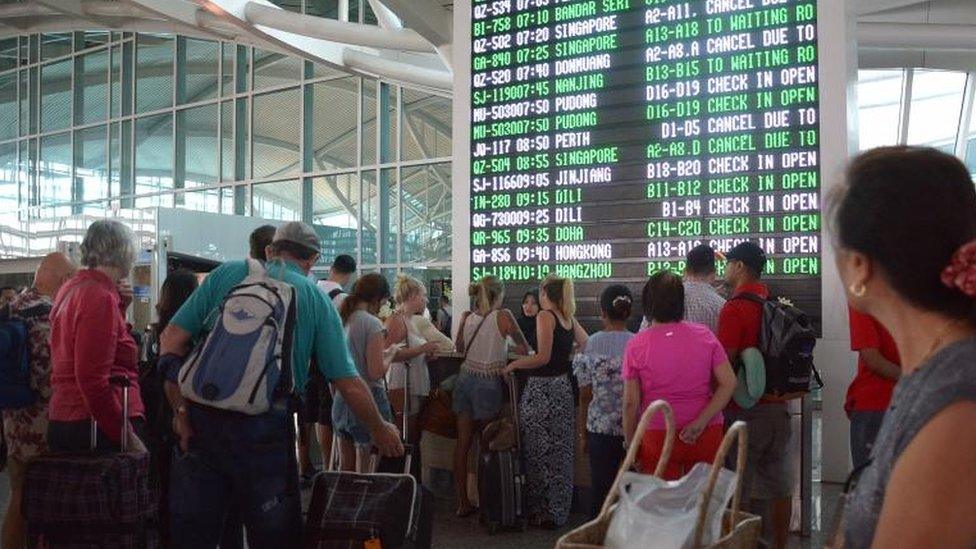
Thousands of air passengers have had their travel plans disrupted
When flights resume, there is likely to be a backlog of passengers, which airlines might take a week or more to clear.
Mr Taylor said the airlines are insured for events like this, but it is not likely to cover all their costs.
Eruptions that cause lasting effects can impose huge costs on airlines.
The International Air Transport Association estimated that global airlines lost about $1.7bn (£1.1bn) of revenue as a result of the disruptions caused by the eruption of Mt Eyjafjallajökull in Iceland in 2010.
Airlines avoid flying when volcanic ash is in the air because it can damage planes' engines.
In June 1982, ash caused all four engines of a British Airways 747 to shut down after the plane flew through ash from Mount Galunggung in Indonesia.
It was able to restart three of the engines and land at Jakarta.
- Published27 November 2017
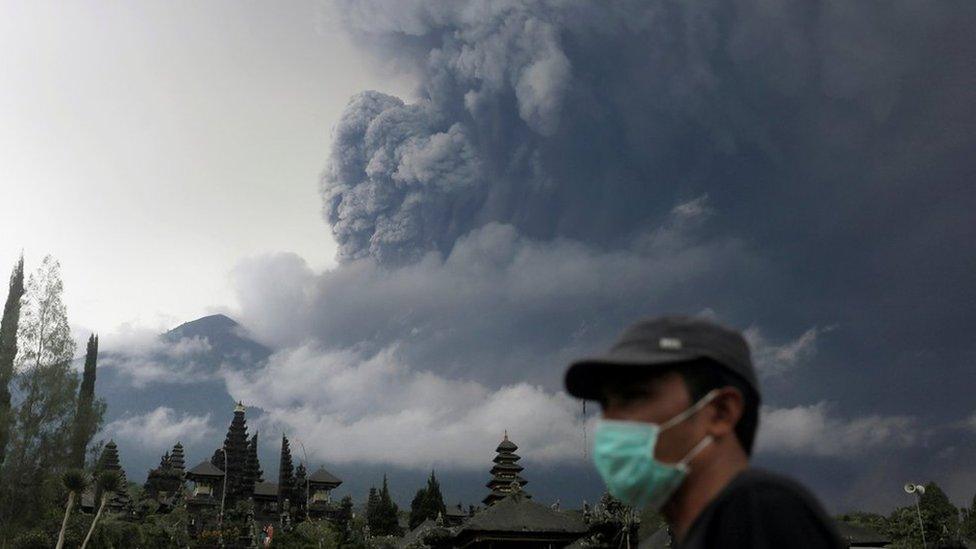
- Published27 November 2017
